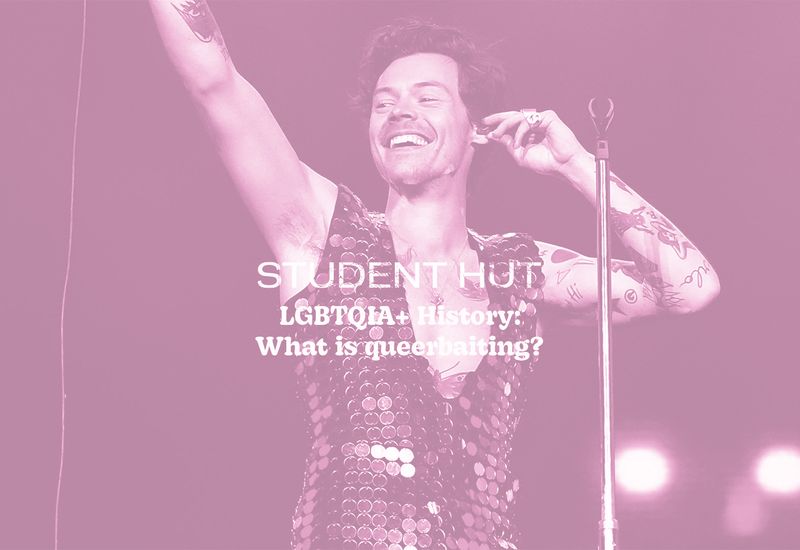A mainstay of online queer discourse, queerbaiting is hotly debated. But what is it?
Originating in online fandom spaces in the early 2010s, the term has evolved and even broken into mainstream discourse. While it’s a relatively new term in the queer lexicon, its roots can be traced back to the Hays Code and the subsequent queer coding.
What is queerbaiting?
It started as a way of describing the phenomenon where same-sex relationships were alluded to but eventually shown not to be the case. The definition of queerbaiting has since become a little clearer. It’s generally accepted to refer to a marketing technique where content creators or writers hint at queerness when there isn’t any.
This can include examples where the author has stated outside of the text that a character is LGBTQIA+ but not featured said queerness in the work. The prime example here is that of Dumbledore in the Harry Potter series. Nowhere in any of the works is it even subtext, let alone fully mentioned.
@ratinamask ♬ Gotta love it here - Chantal King
Something you may have seen on TikTok and other social platforms is men posting thirst traps with questionable queer slang. Instead of inviting queer men to buy their content as straight men, they will pretend to be gay just to get more Onlyfans subscribers from the gay community. It’s a little exploitative and often somewhat cringe.
@benjaminhilton19 ♬ original sound - YouCappertv
Why is it important to have authentic queer representation?
For a long time, positive depictions of LGBTQIA+ people were forbidden in movies and the media. Many queer teens grew up with the only representation being as a joke or a villain, leading to problems with self-loathing and othering. Those growing up in the age of positive representations will feel more comfortable expressing themselves and have a better understanding of what it means to be themselves.
Authenticity is an important part of representing any marginalised group. No one knows the experiences of the community better than the members thereof. With society’s history of denying representation to these communities, we should really let them speak for themselves. You’ll also get the best performances from those who understand the intricacies of oppression.
What isn’t queerbaiting?
@hepetty his response is everything💯 #omarapollo #greenscreen ♬ Suspense (Tension, Build Up, Dramatic, Action, Suspenseful) - Tensionmakers
While it’s worth its own nuanced conversation, straight actors playing gay characters isn’t queerbaiting. A gay character is still a form of representation. Their queerness is still in the text of the piece. We can talk about cis/het actors taking roles from their trans/gay peers in a different argument with its own subtleties.
Queerness also doesn’t have a particular look, just like heterosexuality doesn’t. It’s not fair to say in one breath that clothes have no gender, and then accuse any supposedly straight person who dresses against the norm of queerbaiting. People are free to wear as much makeup, glitter and sequins as they want, regardless of their identity.
Acts of allyship should also not be taken as queerbaiting. Italian Eurovision winner Måneskin faced some backlash after the two straight members kissed on stage in Poland. This was done as a protest against the country's strict anti-LGBTQIA+ legislation and no doubt with the approval of the queer members of the band.
And finally, a character’s LGBTQIA+ identity being subtext is not the same as queerbaiting. Perhaps their romantic and sexual encounters aren’t part of the story. Maybe it’s something to be expanded on in future instalments.
What are the dangers of queerbaiting accusations?
From one angle, these kinds of discussions are regressive and essentialist, boiling down someone’s identity to how they dress or act. A person’s mannerisms are no indication of whether they’re queer or not - Side eye authors who claim characters are queer after the fact.
Kit Connor of Heartstopper was facing criticism for playing a gay character to the extent that he felt compelled to come out. Any LGBTQIA+ person should only share their identity once they’re comfortable doing so. We shouldn’t be setting a precedent for people having to come out just because they played a role.
Prospective student? We want to hear from you! Join the Student Hut Forum and earn £s by taking surveys.













